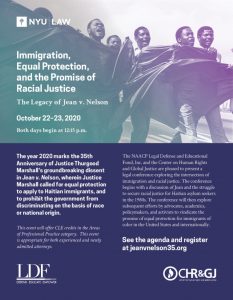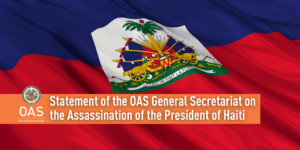A grocery store. A hair salon. A church.
In less than a week, these everyday settings have become the tragic backdrops for the latest outbreak of what has become the quintessential American expression of deadly violence — a mass shooting staged by a lone gunman armed to the teeth with guns and grievances.
Experts who have studied the phenomenon said the three shootings, which have left 11 people dead and 11 more wounded since Wednesday, underscore a sad fact that most of us already understand on some level — that no place is safe anymore.
“They are targeting people in places like nail salons or churches or grocery stores because they think this is where the victims will be the most vulnerable, this is where they think they will find people who won’t fight back,” Seamus McGraw, the author of “From a Taller Tower: The Rise of the American Mass Shooter,” said of the suspected shooters. “Because in the end, these killers are not the supervillains they are made out to be. They are weaklings and cowards.”
Mike Lawlor, an associate professor of criminal justice at the University of New Haven in Connecticut, said mass killers do what terrorists do the world over — they go after “soft targets.”
“If your goal is to kill as many people as possible, you go where people feel safest,” Lawlor said.
In all three cases, most of those who were killed and injured were people of color. Police have already concluded that the grocery store massacre in Buffalo, New York, and the attack on the Dallas hair salon were racially motivated.
In fact, police have alleged that the white teenager who is accused of killing 10 people and wounding three more Saturday at the Tops Friendly Market in Buffalo deliberately chose the store because it is in a Black neighborhood. New York Gov. Kathy Hochul has condemned the actions as an “act of racism and white supremacy.” Payton Gendron, 18, was arrested Saturday as the main suspect.
“White supremacy is the garb they wrap themselves in to cover their raging sense of victimhood and narcissism,” McGraw said of the Buffalo suspect.
The hair salon where a gunman wounded three women of Korean descent is in Dallas. The mostly Asian church where a gunman killed one person Sunday and wounded five other people is in Laguna Woods, a small city in Southern California.
They are thousands of miles apart, but they are connected by a collective fear and by the loss of the sense that they were safe places.
In Buffalo, what happened at Tops Friendly Market has also undermined that sense of security elsewhere in the city. A downtown brewery and a pizzeria were immediately shut down Sunday after a man police identified as Joseph Chowaniec, 52, was alleged to have made threatening phone calls that referred to the massacre. He was arrested and charged with one count of making a terroristic threat.
“This defendant is accused of making threatening phone calls to businesses and referencing this horrific shooting as the entire City of Buffalo is grieving this tragedy,” Erie County District Attorney John Flynn said in a statement.
Leonard Lane, 62, who has lived in Buffalo his entire life, said the attack on Tops Friendly Market wasn’t just an attack on a grocery store — it was an attack on an “anchor” of the community.
“This is a meeting place, if you will,” Lane said. “This is where we gathered to share information. Sometimes you don’t even buy anything. You just show up, be there for hours, because you’re talking.”
Lane said the only reason he wasn’t at the store Saturday was that he was visiting his daughter.
Pastor Tim Newkirk of GYC Ministries in Buffalo said Tops Friendly Market is the “largest African American market in our community.” And it’s a community in and of itself.
“You have a drugstore in there, bank to pay your bills. … You got Lotto,” he said. “And it’s in walking distance.”
Saturday’s shooting, Newkirk said, was a sad reminder “there’s no safe place for an African American to go where he might feel comfortable or safe in his own skin.”
“It’s not about being safe about atrocities and violence, just being safe in your own skin,” he said. “There’s no respite for our people.”
In Dallas, Joann Roh was still counting her blessings.
Direct To Your Inbox
Get the latest breaking news and must-read articles from NBC News
Roh, 50, runs Sura Korean Restaurant, which is next door to Hair World Salon, where an intruder burst inside last week and opened fire. The owner, an employee and a customer were wounded, police said. Early Tuesday, Dallas police announced a suspect had been arrested.
Both businesses are in an area that Dallas residents call Koreatown. And Roh said that while plenty of police were there immediately after the shooting, she hasn’t seen many since then.
“We don’t feel a sense of heightened security after the shooting,” she said. “I can’t help but wonder if it’s because we’re a Korean community.
“There was a police car that sat in front of our store for about 30 minutes on Thursday, so I was hoping they would be taking appropriate security measures. But there weren’t additional police cars on patrol afterward.”
Senior Cpl. Melinda Gutierrez, a Dallas police spokeswoman, said “additional officers have been assigned and have been patrolling the neighborhood.”
There’s no denying that people in Koreatown are rattled, especially because it was the third in a string of shootings targeting Asian businesses in the city and police are investigating it as a possible hate crime.
Roh said the salon owner often comes by for lunch or to wind down over dinner and chit-chat in their native tongue. She said her husband often got his hair cut at the salon. She said she is stunned that the shooting happened in broad daylight.
“We have CCTVs inside our restaurant, but not outside,” Roh said. “I wish we had more cameras to alleviate the customers’ fears.”
Roh isn’t alone in her fears.
“This area hasn’t been safe these last few weeks,” said Jannett Temples, 21, an employee at Nuri Grill, a restaurant in the Asiana Plaza shopping center adjacent to where two of three recent shootings have taken place.
Outside Koreatown, others in Dallas were also feeling wary in the wake of the latest shooting.
“Normally, I would think I’m safe where I’m going, but clearly that’s not the case,” said Tiffany Garrett, 29, who lives outside Dallas in the town of Lancaster. “I know I can’t stop living my life just because there are people out there who hate me just because of what I look like. It’s pretty traumatizing to think you can’t even go get some groceries or get your hair done.”
Garrett is Black.
In Southern California, the FBI opened a hate crimes investigation Monday, a day after a man described as a Chinese immigrant opened fire on the congregation at Taiwanese Presbyterian Church, which shares a space with Geneva Presbyterian Church.
Describing it as a “politically motivated hate incident,” Orange County Sheriff Donald Barnes said the suspect, David Chou, 68, of Las Vegas, was apparently upset over the political tensions between his native land and Taiwan.
The gunman was heavily armed when he crashed a banquet for a pastor who had just returned from a trip to Taiwan, Barnes said. He took along Molotov cocktails and tried to glue the locks so the victims couldn’t leave.
But the apparent attempt to commit mass murder was stymied by the bravery of Dr. John Cheng, 52, a physician, who charged at the gunman and tried to disarm him.
Cheng was killed and five other people were wounded before the congregants were able to disarm the gunman and hogtie him with extension cords.
“This is upsetting and disturbing news, especially less than a day after a mass shooting in Buffalo,” Rep. Katie Porter, D-Calif., whose district includes the church, said on Twitter. “This should not be our new normal. I will work hard to support the victims and their families.”
Burke reported from Buffalo, Hampton from Dallas and Park and Siemaszko from New York City.




